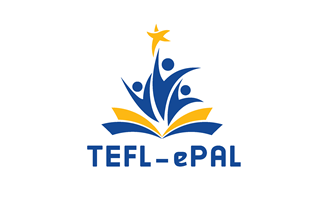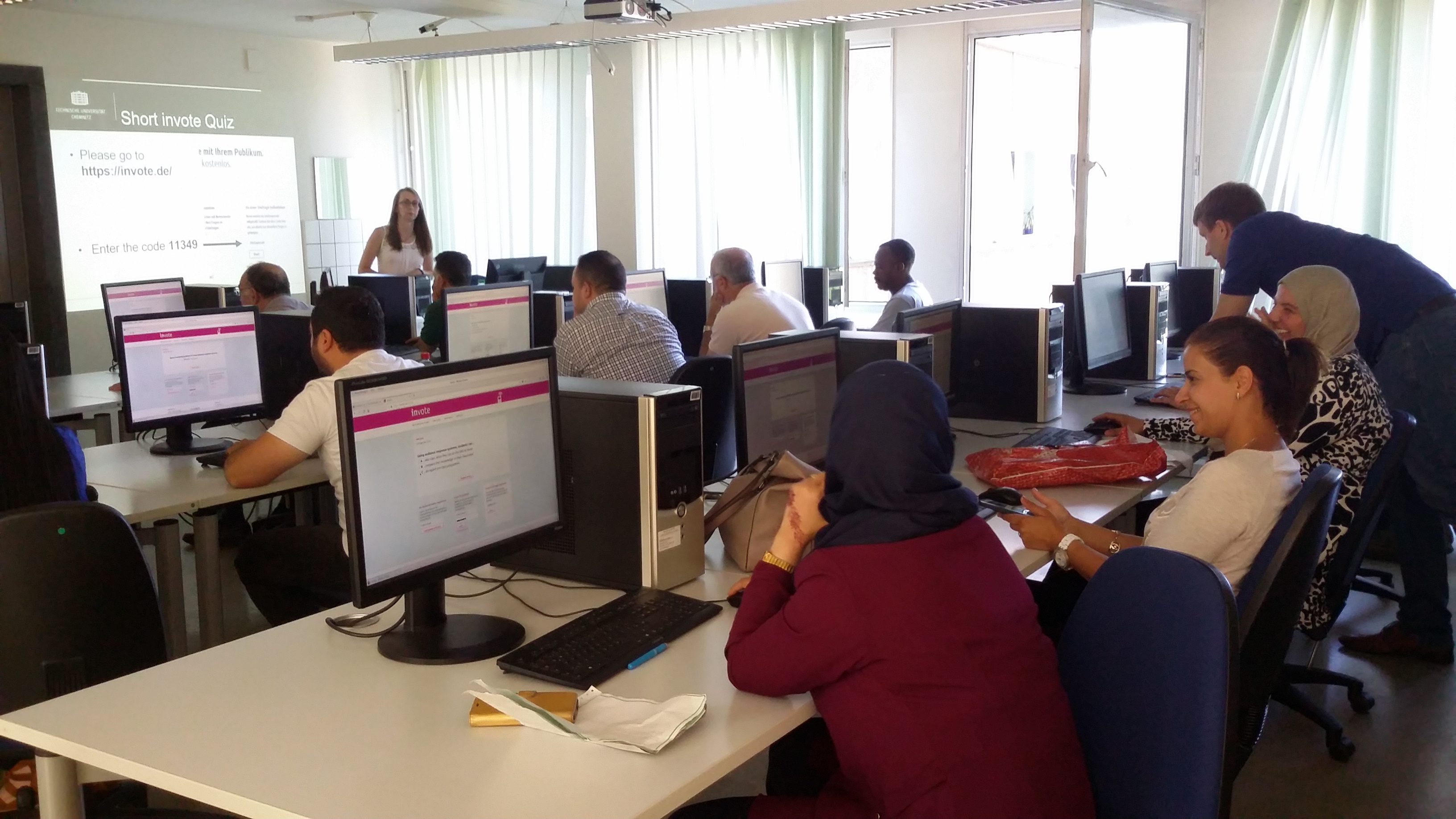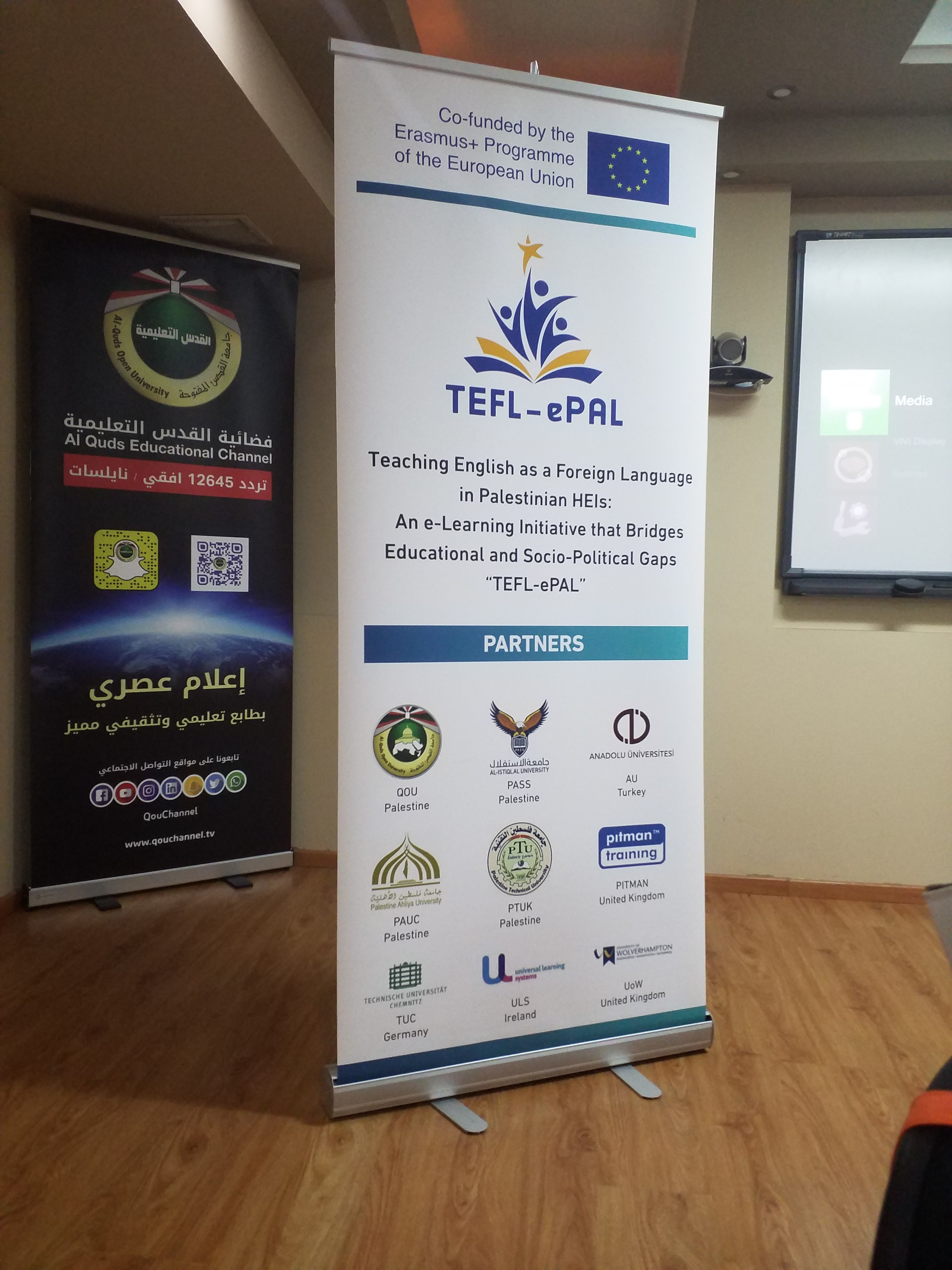Teaching English as a Foreign Language in Palestinian HEIs
An e-Learning Initiative that Bridges Educational and Socio-Political Gaps
Launched in January 2019, this three-year capacity-building project, co-funded by the Erasmus+ programme of the European Union, sees us collaborating with nine institutions of higher learning – from across Europe and Palestine – as we work on revamping the English language curricula at four Palestinian universities. Our focus as TU Chemnitz is Quality Assurance, but the all-hands-on-deck character of the project means that our input is required across the five work packages.
Mid-summer sessions in Chemnitz
In June 2019, we welcomed our Palestinian partners to the Department of English & American Studies for three days of observation and fact-finding. In her keynote presentation, Prue Goredema, MBS discussed the importance of grounding curricular development in a sound educational philosophy – be it positivist, progressive or critical as the case may be. Project Coordinator Dr Aida Bakeer of Al-Quds Open University said, “We are keen to learn from the experience of our European partners. We had a successful observation visit to the University of Wolverhampton, UK, and our time at the Chemnitz University of Technology has been equally productive.” In addition to taking in the educational wonders at the Virtual Reality lab at Technopark and delving into an IT tools workshop hosted by our Department, the Palestinian visitors also learnt about the process of internationalisation in a presentation given by Dr Wolfgang Lambrecht, the head of the International Office. Our campus legal eagle, Gernot Kirchner, brought all participants up-to-date on the topic of “General Data Protection and Privacy for EU Projects”. Another highlight during the week was a foray to the Pegasus House library where librarians Carolin Ahnert and Martina Jackenkroll discussed research data management, the open science phenomenon and various open-access models that may prove useful as the TEFL-ePal project takes shape. At the close of the visit, the Palestinian partners sat-in on a BA2 Second Language Acquisition lecture on the theme of “Acculturation”.
The Parley in Palestine: July 2019
In the preparation phase of the project, data were sought on the current instructional practices at the four participating Palestinian universities, namely Al-Quds Open University, Palestine Ahliya University College, Al-Istiqlal University and Palestine Technical University Kaddorrie. The survey results were formally disseminated at a meeting of all partners in Ramallah, Palestine, in July 2019. The Director of the National Erasmus+ Office, Dr Nedal Jayousi, graced the occasion and urged the project participants to keep striving for excellence. “Around 70% of Erasmus+ projects are in Engineering or the natural sciences; projects in the humanities, such as TEFL-ePal, are sorely needed,” he said. Also officiating at the Ramallah dissemination workshop was Prof. Samir Najdi, the Al-Quds Open University Vice President of Academic affairs. Congratulating the project participants on the progress thus far, he also reiterated the importance of adhering to the objectives stipulated in the project proposal to ensure that the English curricula under development will serve the interests of students and other stakeholders.
This milestone meeting in the Middle East also afforded our TU Chemnitz team the chance to visit two partner campuses in Bethlehem in order to conduct focus group discussions with students whilst surveying the teaching situation. Plans are now underway to harmonise English-language instruction at the TEFL-ePal institutions, steadily aligning the curricula, syllabuses, methods, materials and assessment practices in line with local aspirations and the Common European Framework of Reference for Languages. Prof. Josef Schmied, Chair of English Language & Linguistics at TU Chemnitz said, “There are multiple considerations that inform our work in this project. Standards and practices at the four participating institutions currently vary tremendously; however, we have every confidence that the input of all nine partners will lead to and even surpass the desired outcomes.”
The second Chemnitz encounter: January 2020
As we move into the next phase of the project, our attention will shift to empowering the Palestinian educators with the skills necessary to appraise teaching and learning resources – essential dimensions of materials development.





